We moved to Lisbon in 2019 after three years of nomadic life. Discover 10 things we love about living in Portugal as well as six things we don’t.

We previously shared why we moved to Lisbon.
After living in Portugal for five years, we’re now ready to share our thoughts about our life-changing decision. These thoughts include all of the good and bad things about living as expats in Portugal from our personal perspective
Pros and Cons Of Living In Portugal As An Expat
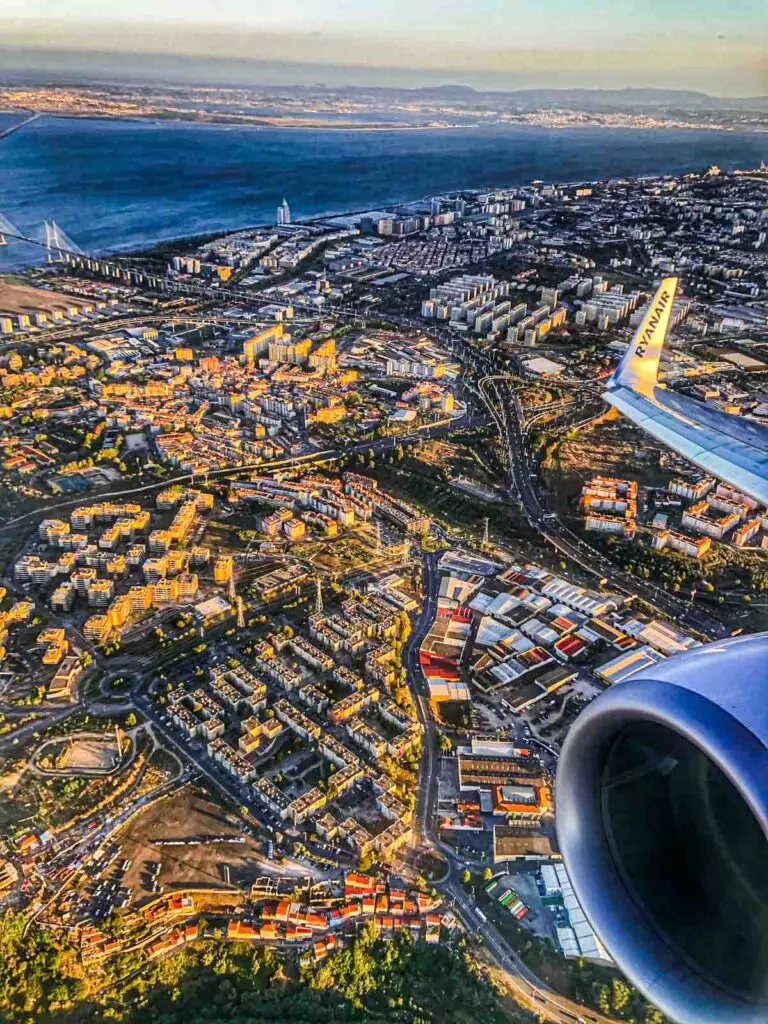
Moving to Portugal has become trendy.
While we were far from the first Americans living in Portugal, we’re constantly contacted by people who want to make a similar jump. They want to know how we did it and what it’s like to live in the Iberian nation. They also want our recommendation on where to live, details about the crime rate in Portugal and how much to budget.
Our first piece of advice is that everybody is different and that the lifestyle options in Portugal are numerous. People with kids will have different priorities compared to recent retirees. Our top priority involves living in a culturally diverse city with an airport that offers easy connections to Europe and the world.
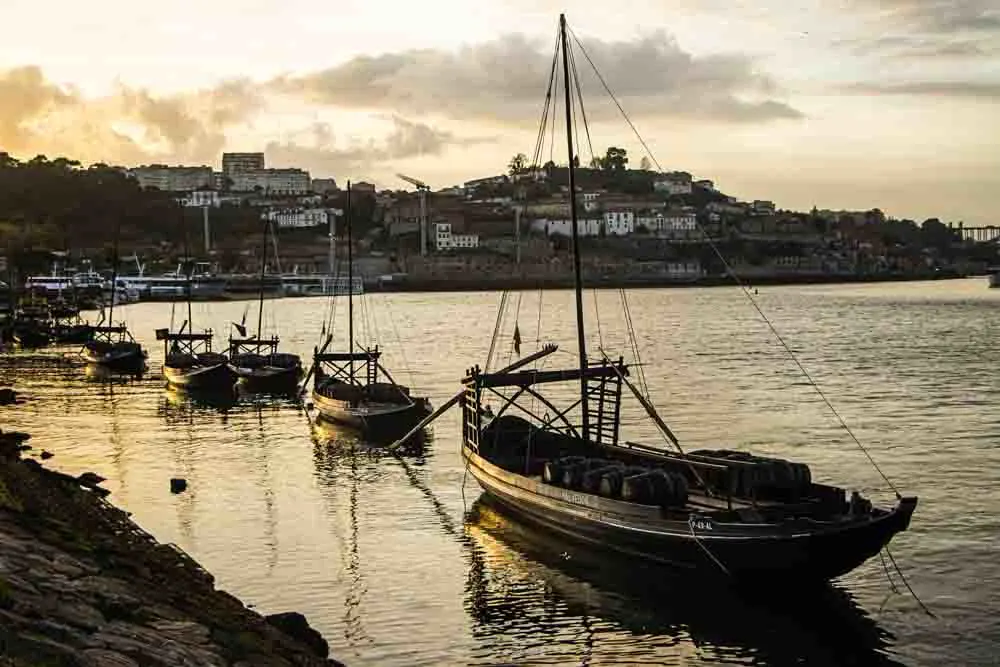
We initially considered living in Porto for many reasons including the city’s epic beauty and its never-ending supply of port wine. However, we ultimately decided to live in Lisbon.
While we love living in the center of Portugal’s vibrant capital, others may prefer living by the beach or on a farm. We’re city people and Lisbon is the country’s largest metropolitan region with a relatively vast selection of international cuisine and a formidable international airport. At the end of the day, Lisbon checked more of our boxes than any other Portuguese city.
Read more about why we moved to Lisbon.
10 Things We Love About Living In Portugal

In short, we love living in Lisbon. All of the reasons that made us decide to abandon the digital nomad life and apply for D7 visas and become Portuguese residents proved valid. However, like any place we’ve lived in the world including the United States, there are a handful of things that annoy us after a few years.
Read on to discover our favorite aspects about expat life in Portugal in general and living in Lisbon in particular:
Great Food
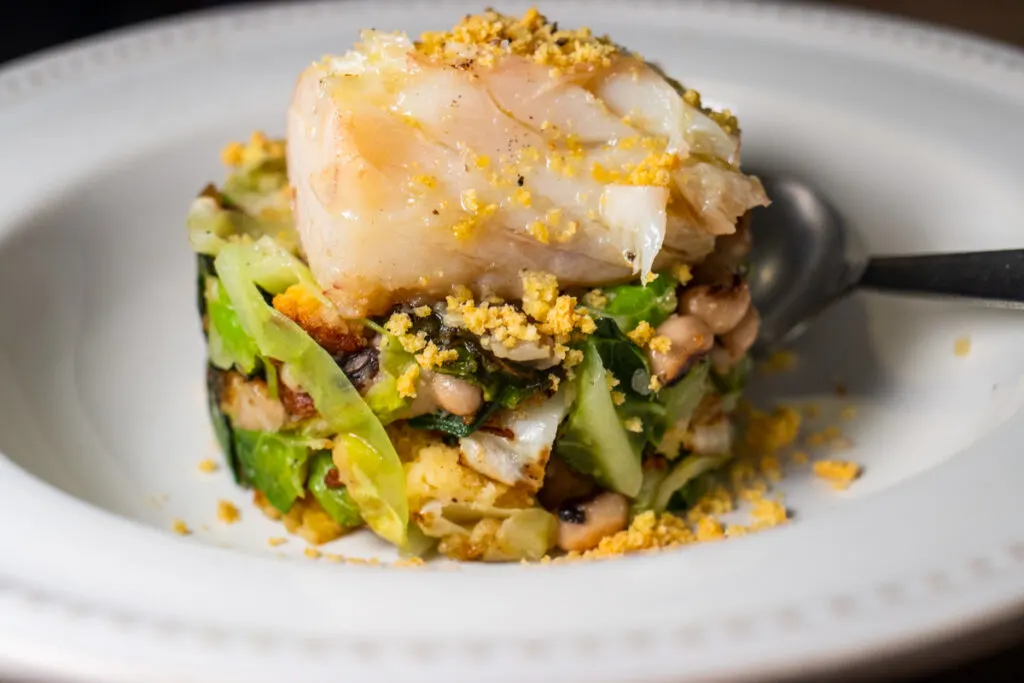
We love eating in Portugal. We love the food at restaurants, in markets and what we cook at home. We love chowing down on traditional bacalhau à brás (cod with potatoes) at tascas (taverns) as much as we love dining at fancy Michelin-starred restaurants like Belcanto. We love the omnipresent desserts that go way beyond pasteis de nata. We love it all.
Located in southern Europe, Portugal has a wealth of excellent cured meats and cheeses that have been produced for millenia, a lifestyle in which daily fresh bread is a way of life and a cooking culture filled with traditional dishes passed down through generations.
It’s also one of Europe’s great agricultural centers with an array of incredible fruits and vegetables that come and go with the seasons.
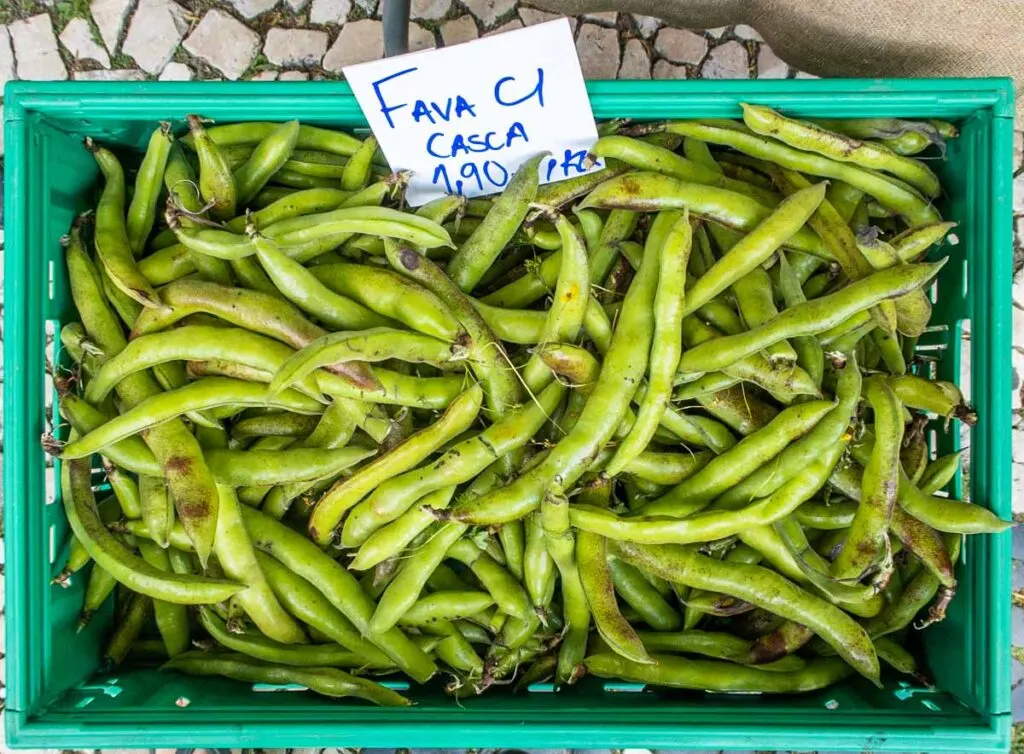
During the spring, we enjoy fresh strawberries. Then comes June with its deep red cherries followed by July’s sweet little green plums called Rainha Claudia. August brings purple and dark green figs. Excellent tomatoes are available from June all the way to November – our favorites are amazing heirloom tomato varieties sold at our local bio (i.e. organic) farmers markets.
Discover our picks for the best food cities in Portugal.

We eat some of the world’s greatest seafood in Portugal too. From Porto and Matsinhos in the north to Lisbon and neighboring Setubal in the center and all the way down to Algarve in the south, a huge variety of fish, crustaceans and mollusks are available at both markets and restaurants. Even Lisbon is a seafood paradise thanks to restaurants like Cervejaria Ramiro and Ponto Final.
The nation celebrates fresh sardinhas (sardines) in June and gambas al aguillo (garlic shrimp) is a national dish. It’s virtually impossible to visit or live in Portugal without enjoying seafood centered rice stews like arroz de tamboril (rice with monkfish).
Other seafood favorites like açorda (seafood bread stew) and cataplana (seafood stew with potatoes) are easily found throughout the country too.
Check out our recipe for arroz de pato, Portugal’s version of duck rice.

Spain is famous for Iberico jamon but did you know that a good amount of the black pork used to make those hams is raised in Eastern Portugal? In Spain it’s called pata negra but it’s called called porco preto in Portugal.
In our opinion, the country’s chouriço porco preto, when produced with care, is one of the finest pork products in the world. We enjoy it on cheese boards along with presunto (Portugal’s dried ham similar to serrano hams found in Spain) and Portuguese ‘torta cheeses’ like azeitão – an aged, raw sheep milk cheese that’s opened from the top and eaten with a spoon.
For everyday food there’s nothing better than a bifana – a simple sandwich of stewed pork on a round Portuguese roll. When we’re really hungry after a port wine tasting crawl, we love sharing a francesinha – an American diner-like amalgamation of bread, ham and steak, covered in melty cheese, smothered in tomato/beef gravy and topped with a fried egg.
Discover even more Portuguese food favorites.
Portuguese Wine

Portugal gained world fame through its production of port wines – vintages that have been ‘fortified’ with grape spirit (think brandy.) Legendary houses like Graham’s, Kopke and Sandeman’s operate in the northern city of Porto where they produce port wine using grapes grown in the nearby Douro Valley.
If you visit Porto, you can easily cross the Rio Douro and taste some of the best port wines in Vila Nova de Gaia. You can also buy trophy-worthy bottles and barrel aged wines to enjoy later.
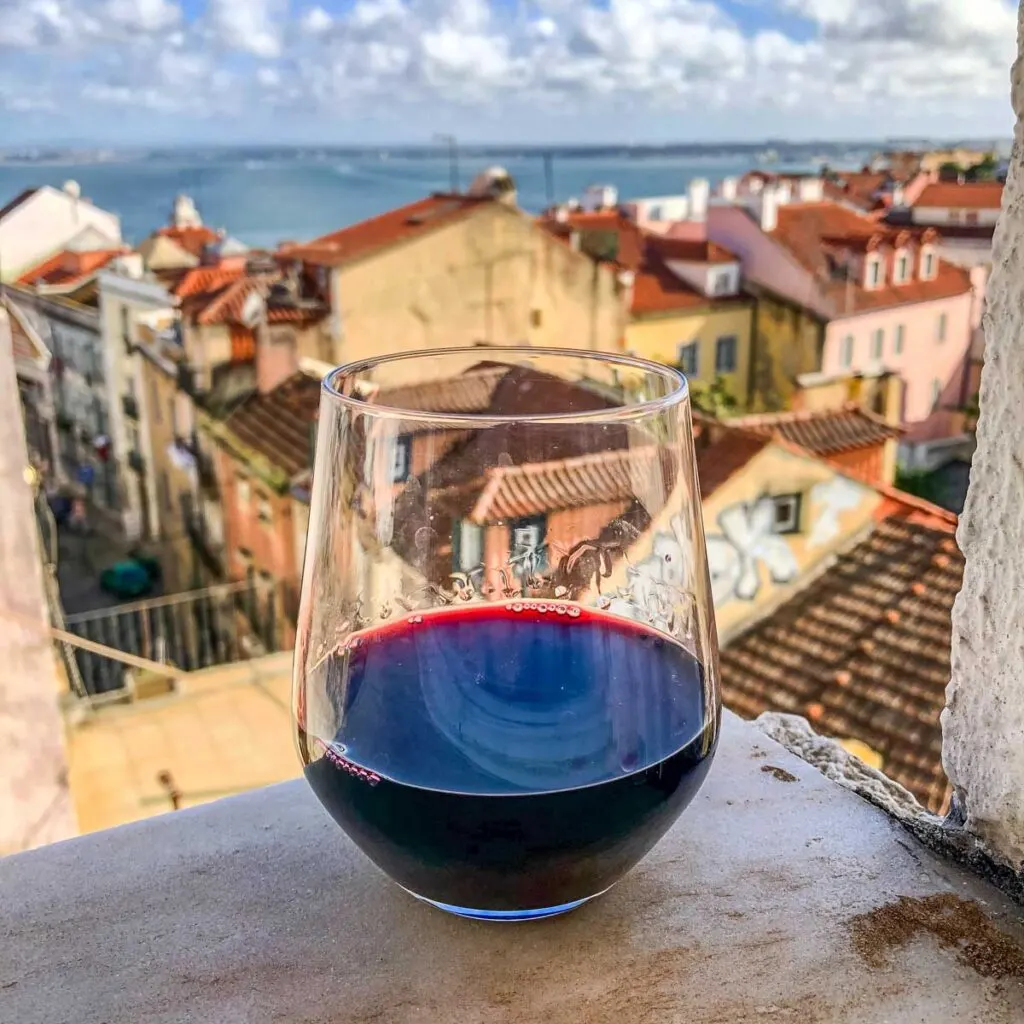
But great wine in Portugal isn’t all fortified and isn’t limited to the the Douro Valley. Portugal produces serious, age-worthy reds and shockingly good whites in the eastern dry, hot region of Alentejo, the northern region of Bairrada and even in the Lisbon region. These are just a few of Portugal’s 14 wine regions which include the Portuguese islands of Madeira and The Azores
And the best part? Excellent everyday table wines can be purchased for under 5€ at Portuguese grocery stores. Sometimes, we’re shocked at how good these wines are considering their affordability.
Affordable Cost Of Living
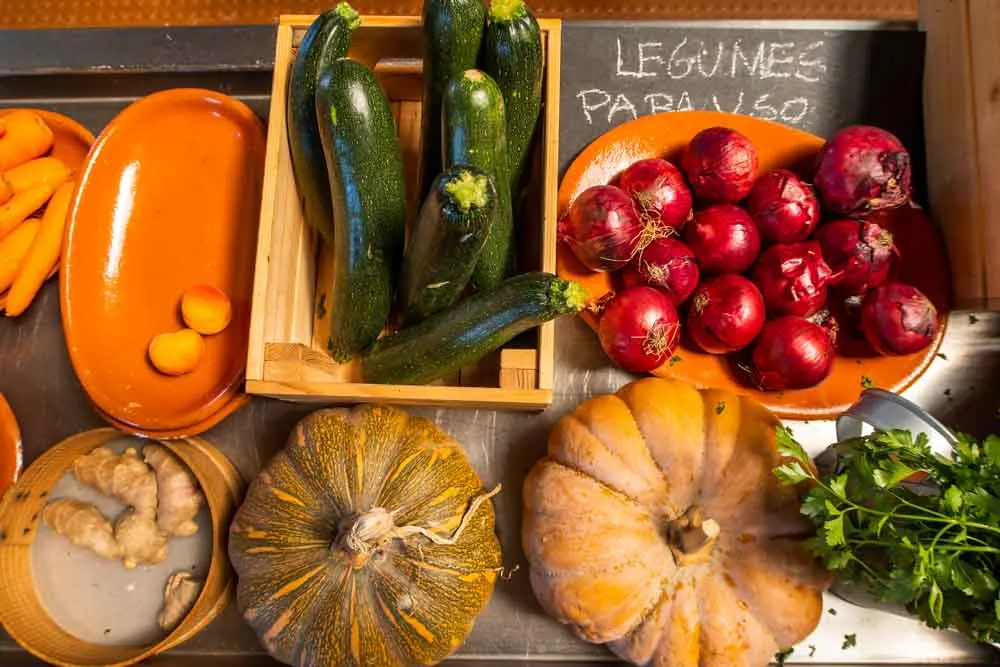
Portugal is affordable compared to most developed nations in both Europe and North America. We’d call it cheap but that would be crass. Plus, that terminology isn’t exactly the truth. Rather, instead of cheap, Portugal is a good value for those who earn income outside of the country. Portuguese salaries are notoriously low.
Frugal shoppers will find great deals on products like pottery and glassware produced in the country. Groceries tend to be less expensive, unless they’re imported, and local markets are treasure troves for those (like us) who prefer eating fresh fruits and vegetables.
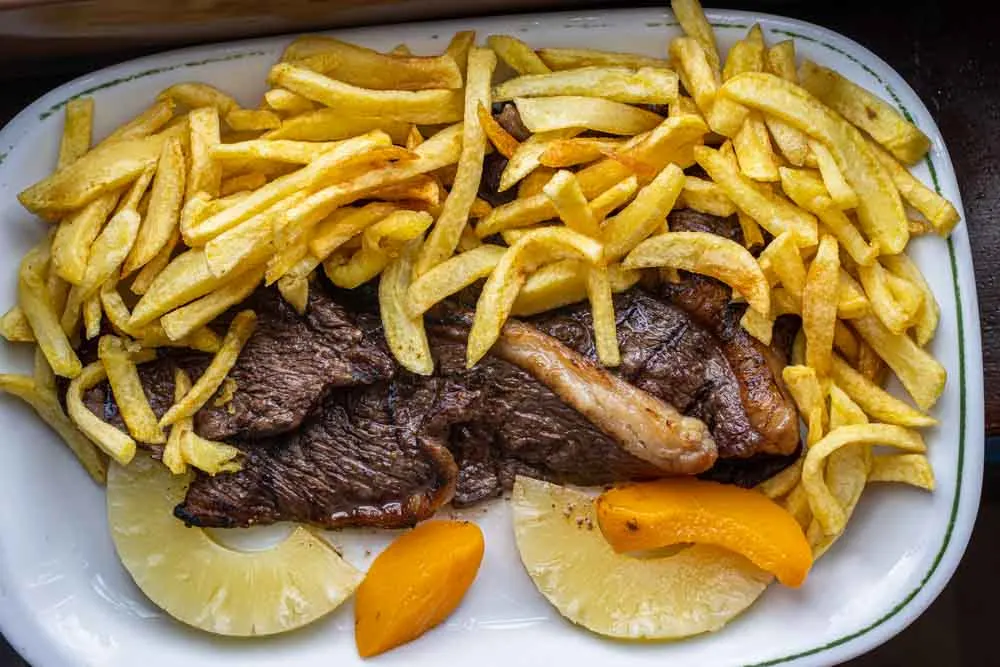
Restaurant meals are great deals when you consider that prices include both tax and gratuity. Accordingly, our small tips for good service are both earned and appreciated. Lunch specials are particularly cost effective, often costing under ¢10 for multiple courses.
However, there are notable exceptions to Portugal’s affordability.
Electronics and camera gear are a good bit more expensive compared to the US and other European countries. For some reason, sun screen is also expensive unless it’s on sale. Utilities are high in price too, motivating many Portuguese people (not us) to eschew both air conditioning and heat.
And, importantly, really great apartments come at a premium though they’re still a decent value compared to countries like the USA, UK and France. Real estate can be a challenge as it’s driving the Portugal cost of living up, especially in cities like Lisbon and Porto.
Our Beautiful Apartment

The third time was a charm when we looked for a great apartment in Lisbon.
We were rushed while looking for our first apartment since we needed a lease as part of our D7 visa application. Plus, we were misinformed about the low cost of real estate and what we should pay for a good apartment.
While our second apartment had amazing views, it lacked certain amenities, namely a dishwasher, full-sized refrigerator, air conditioning and heat. We were initially okay with these omissions since we traveled a lot, but then the pandemic hit and we were home on a 24/7 basis for months and months and months. Ouch!
Once we raised our budget and expanded our search, we found an apartment that we love in Lisbon’s Baixa neighborhood. It has all of those missing amenities plus some we didn’t realize we needed like a built-in ice maker, dryer and wine fridge. Plus, the views from our French balconies rarely disappoint.
Fast Internet

While living out of a suitcase for three straight years, we discovered that the richest nations don’t necessarily have the fastest internet. We’ve surfed at lightning fast speeds in nations like Vietnam, Romania, Thailand and even Sri Lanka. The same thing can be said for Portugal.
Countries like the UK and Germany occasionally sport spotty and surprisingly slow connection speeds. Meanwhile, Portugal’s electronic superhighway is a dream with download speeds up to 1GBPS. This dependable speed is critical for our business and enjoyable when we want to watch a movie or show on Netflix.
Friends and family from the USA wonder in amazement at the clear, clean signal coming from across the ocean. Zoom calls? Games? Fast video uploads? Não tem problema!!
Travel Within Portugal
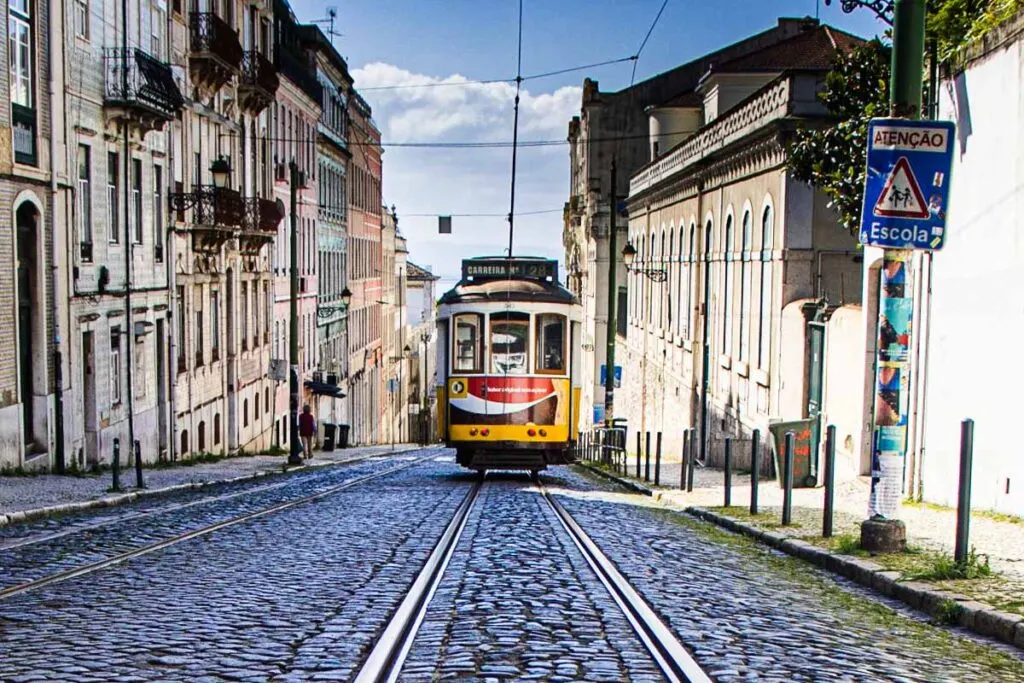
The phrase ‘trains, planes and automobiles’ is incomplete when it comes to transportation within Portugal. While Portugal has all of these options, the options also include subways, trams, buses, ferries and bikes. Then there’s our personal favorite way of getting around Lisbon – walking.
Don’t get us wrong. We don’t hesitate to use every mode of public transport including the iconic 28 tram. We even purchase monthly transit passes when we’re not traveling. It’s all a matter of what makes sense.

Traveling between cities is a different matter. We typically take trains when we travel to nearby destinations like Cascais and Sintra as well as to more distant cities like Porto and Faro.
Portuguese train rides aren’t just fast and cost effective. We ride in surprising comfort, even in second class cabins, when we take trains to other cities. Portugal even offers high speed Alfa Pendular trains between Porto, Lisbon and the Algarve.
Travel Within Europe

Traveling within Europe is a different matter.
Portugal’s location on the continent’s western edge makes train travel difficult if not impossible to other European countries. (We had planned on taking an overnight train to Madrid in 2020 but those plans were shelved when the train route was canceled during the pandemic. We’re still waiting for it to return but we’re not holding our collective breath.)
We’re not complaining too emphatically though. We can easily fly on discount airlines like Ryanair and Easy Jet as well as on more mainstream TAP for relatively low prices. And, thanks to our credit cards, we enjoy the privilege of Priority Pass which allows us to use lounges at most airports around the world.
Mild Climate

A foot of crippling snow greeted us as we exited our Philadelphia house in 2016. The snow validated our decision about leaving and abandoning brutal Philly winters forever.
Since we moved to Lisbon in 2019, our memories of snow and bitingly cold winds have faded like the sunsets that greet us every night on the Rio Tejo. Lisbon’s latitude of 38.7° places the city in the semi tropics with warm days in the summer cooled by Atlantic evening breezes.
Yes, the winter can be cold and rainy in Portugal. Although many houses and apartments lack good insulation and climate control, these issues are relatively minor compared to the monster snow storms we endured while living in the Northeastern USA.
Stunning Beaches
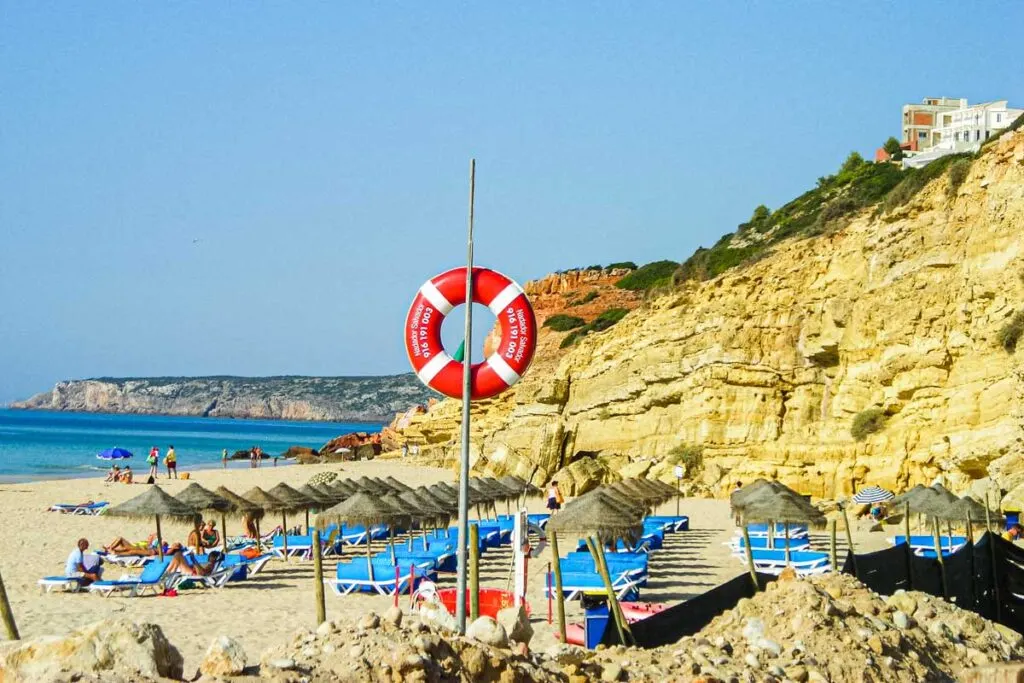
The beaches in the Algarve are legendary. However, the dirty little secret (shhhh) is that Portugal has beautiful beaches all along its Atlantic coastline.
In other words, it’s not just possible to take visit a beach while in Lisbon or Portugal, it’s also easy. As in as easy as taking a short train ride.
Great Lisbon beach options include Carcavelos, Comporta, Setubal and Comporta. Meanwhile, visitors to Porto can chill out at Praia de São Jacinto in Aveiro.
Medical System

We’re lucky. We’ve never had major medical issues that have rendered us incapacitated and/or drained our bank account. While we had great health insurance when we lived in the states, it came at a hefty cost.
Since moving to Lisbon, we’ve found that health services in Portugal rival the quality in America. Hospitals are state-of-the-art here and many health professionals speak English. However, the best part of the Portuguese medical system is its affordability.
All citizens and legal residents have access medical care. We supplement public benefits with private insurance that costs a fraction of what we would pay back home. We hope that nothing bad happens to our health but, if it does, we’ll be covered.
6 Things We Don’t Love About Living In Portugal

People who expect Portugal to be a non-stop honeymoon will be sorely disappointed. We say this after spending our honeymoon in Portugal back in 2007.
Like anywhere in the world, there are both good and bad things about living in Portugal as an American. The same goes for our chosen city of Lisbon.
While we love living in Lisbon, there are a few things that drive us crazy. None is critical but, out of full disclosure, here they are:
Foods We Miss

We love the food in Europe – the raw milk cheeses, the fresh fruits and vegetables, the cured meats, the pizza, the pasta, the stews – we love it all. But, as we’ve traveled the world, we’ve found that, like Newton’s third law, “for every action there is a reaction.” In other words, for every great food we’ve found in Portugal, we’ve also missed certain American food that are either difficult to find in Lisbon or simply taste better in America.
When it comes to pizza, we can find incredible Neapolitan pies (which we love) and crunchy Roman pies (which we like) but as far as New York style slices we can fugetaboutit. NY pizza is made using a unique low moisture mozzarella which does not seem to be readily available in Portugal.

American beef is totally wrong – a grain fed product that musses up the earth. But, if you’re an omnivore, try going without American beef for awhile and then tasting it again once you return home. You won’t believe how much you missed it until that first bite.
Sure we’ve found some decent burgers in Lisbon but not the kind of burger we enjoy at local Philadelphia restaurants… or at fast food chains like Shake Shack and In-N-Out Burger. We have yet to find a bagel here that approaches the excellence of New York or even Philly.
Mexican food? Sure, it exists but not in the abundance or price we’re accustomed to finding in America. Don’t even bother looking for spicy fresh jalapeños – they’re difficult to find. While this situation is improving, with Mexican restaurants and stores opening all the time, there’s nothing like eating burritos and tacos in North America.
Update
The global food situation in Lisbon is rapidly improving. We can now find solid burgers, bagels and Mexican food. Hooray!
Language Barrier

“Portuguese, it’s easy. It’s just like Spanish, right?” Well, even though Portugal is located on the Iberian Peninsula, the Portuguese language contains marked differences.
Portuguese, a Romance language, is indeed a lot like Spanish, sharing thousands of words including amigo (friend), cuidado (caution) and frio (cold.) But, make no mistake, Portuguese is a unique language that’s quite different from Spanish.
Not only does the Portuguese languague contain unique vernacular and pronunciation elements that are guttural like German and Russian, it’s also as difficult to understand as French. For example, take the word rua (i.e. street). It’s pronounced rroooaah, with the beginning of the word pronounced from the bottom of the throat.

Portuguese vowel sounds differ from those in French, Spanish and Italian. Instead of the standard ahh-ay-ee-oh-oo, Portuguese vowels sound is more like uh-eh-ee-oo-ew. The differences are subtle but real.
Additionally, the Portuguese, like the French and Italian, speak at lightning speed, especially in Lisbon. On top of that, English is so widely spoken in international areas of the country that, unless you speak the language with a high level of competency, the conversation typically reverts to English.
Pro Tip
Learn European Portuguese, not Brazilian Portuguese, if you’re planning a move to Portugal. There are marked differences between the Portuguese spoken in Portugal and the Portuguese spoken in Portugal’s more populous brother country of Brazil. We’re using Practice Portuguese to learn the European Portuguese language and highly recommend it.
Bureaucracy

Everything always seems to work out in Portugal. Things just move at a slow pace and take longer here. The key for Portugal expats is to be patient, not an innate virtue for either of us.
We first experienced Portuguese bureaucracy while applying for D7 visas in 2018. We applied in November that year, met with the consulate in Newark, NJ in January and received our visas a few months later. We later exchanged those visas for residence permits and became Portugal expats..
Since we operate a location-independent business, obtaining D7 visas was the best option for us. Beyond proving financial security, the process involved obtaining NIF tax numbers, setting up a Portuguese bank account, arranging appropriate travel insurance and finding an apartment. We’d tell you all the steps but this information is constantly changing.
We’ve had plenty of chances to experience Portuguese bureaucracy since we moved to Lisbon. As an example, it took over five months to secure our public health numbers, a process that should have taken less than five days. The pandemic made those numbers critical since they’re tied to vaccinations and were necessary for securing EU digital vaccine passports. At the end of the day, we got them, and that’s what really matters.
Hills And Sidewalks

Though Lisbon, where we live, is nicknamed the City of Seven Hills, it seems to have more like 700 hills. Other cities like Porto are hilly too. While these hills have their pluses, namely striking views and enhanced calorie burning, they get annoying when we’re running late to dinner and when we’re carrying groceries.
Then there are the sidewalks called calçada in Portuguese, while aesthetically pleasing with their stone mosaic designs, that make wearing sensible shoes a must. Sometimes we think they’re even slipperier when they’re dry than when they’re wet. We’ve seen people of all ages hit the pavement, some more gracefully than others.
Distance From Friends And Family

Sometimes it’s not fun to be far away from family and life-long friends. This is likely the case for anybody who lives abroad.
Don’t get us wrong. We’ve made friends in Portugal and we have each other. Plus, we can easily communicate across the ocean via Zoom, WhatsApp, Messenger, Skype and FaceTime.
However, sometimes we’re bummed to miss out on life events and want to hug our moms in real life. But then we eat a Pastel de Nata or share a bottle of 4€ wine and we feel better.
Excessive Shipping Costs

Receiving boxes in Portugal is a challenge that limits our ability to collaborate with international companies. It also makes receiving gifts from family a no-no since the taxes can be as high as the value of the goods and sometimes even higher.
We learned our lesson the hard way when we ordered business cards from a British company that shipped our order from Rhode Island instead of London. While a pre-Brexit shipment from the UK wouldn’t have been an issue, we had to schlep to a government building to pick up our package and paid a fee of 40€ + since the box was shipped from the US. Yikes!
Needless to say, we’re now extremely careful whenever we order anything online and we hesitate to give out our mailing address to family. Sorry mom! The same goes when we consider collaborations that involve shipped products.
Frequently Asked Questions
Located on Europe’s west coast, Portugal is a beautiful country with a long and interesting history. Many people travel to Portugal to enjoy the country’s culture, cuisine, architecture and beaches. Some of those people fall in love with the country and decide to make it their home.
Living in Portugal is a dream for many these days due to the country’s sunny climate, relatively low cost of living, low crime rate and rich culture. Some expats choose to live in cities like Lisbon and Porto while others choose to live in smaller cities, rural areas or in beach towns. The Portuguese pace is slower compared to America and other first world countries, which can be a good or bad thing depending on the situation.
The difficulty level for moving to Portugal varies based on where a person has citizenship (EU versus the rest of the world), employment status and finances. Non-Europeans need to secure a visa prior to arriving and can then apply for Portuguese residency and eventually Portuguese citizenship. Each of these steps requires research, takes time and has a cost.
American expats live all over Portugal. While Lisbon has the most American expats, other popular landing spots include the Algarve, Porto and the Silver Coast. There are even vibrant expat communities on the Portuguese islands in the Azores and Madeira.
While Portugal is no longer the bargain that it used to be, it can be a good value for people who love the Portuguese lifestyle and have the resources to secure a great place to live.
The short answer is no. The better answer is to consult a tax expert to find the tax implications of moving to Portugal for your particular situation.

About the Authors
Daryl and Mindi Hirsch
Saveur Magazine’s BEST TRAVEL BLOG award winners Daryl and Mindi Hirsch share their culinary travel experiences and recipes on the 2foodtrippers website. Since launching the site in 2012, they’ve traveled to over 40 countries in their quest to bring readers a unique taste of the world.
Travel Insurance

Get a discounted quote for travel insurance to protect your trip from things like injuries, theft and cancelations. We never travel without protection! Plus, you’ll need travel insurance if you apply for a long-term Portuguese visa too.
Original Publication Date: August 8, 2021


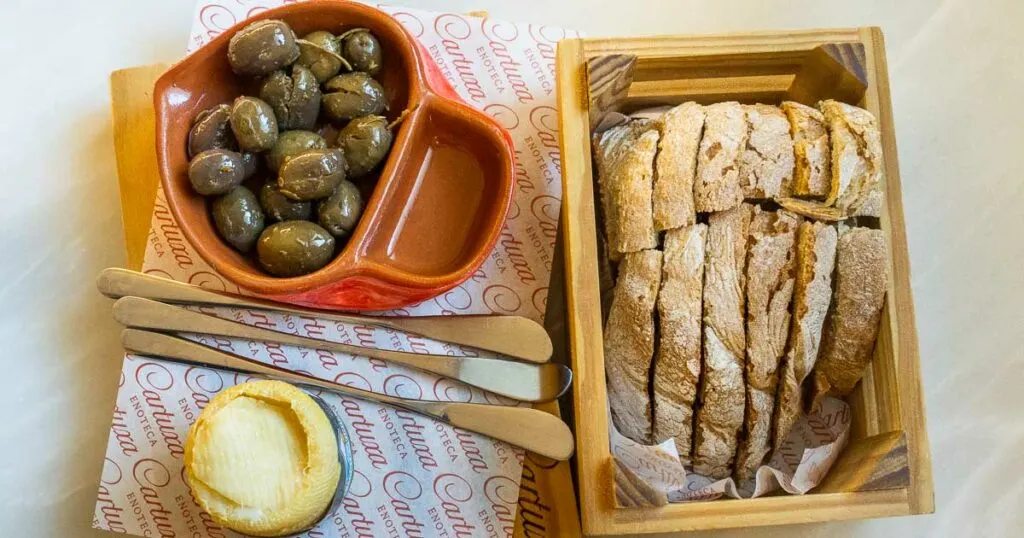

Shawn
Thursday 22nd of February 2024
Philly winters being "brutal" is maybe overstated, but I totally take your point about the lovely, mild climate of Portugal.
Daryl and Mindi Hirsch
Tuesday 12th of March 2024
Are you from Philadelphia?
Margaret
Saturday 8th of July 2023
Hi Daryl and Mindi, enjoyed your article. Me and one of my very dear friends (girls trip) will visit Portugal for a couple weeks in early 2024. We're staying in the Faro district - would love to chat and possibly treat you to lunch or dinner when we are there.
Daryl and Mindi Hirsch
Monday 10th of July 2023
Thanks so much. We live in Lisbon, which is about three and half hours from Faro and the Algarve. We probably won't be in Faro but if you happen to be traveling through Lisbon reach out.
Eileen Vicente
Monday 20th of February 2023
I have lived in hell for 19 years. Hell is Portugal. My husband almost died, because of poor medical care in Porto. The people in Porto are cold and unfriendly. It rains a lot here! The food in Porto is horrible. The food in Lisbon is terrific by comparison. There are very few support groups. Would I move here again? Never in a million years. I am so tired if the xenophobia and dangerous medical care and horrible rude drivers. We will be moving to Spain soon. Any place but Portugal and the Middle and Far East for sure. Oh I forgot about Russia.
Deja
Wednesday 8th of February 2023
I wondered if there was more to loving life as an expat in Portugal than food. The article was more about food and wine than an actual living experience and day to day life. I am glad to see people post true experiences so as not to mislead us . Of course you could rent an apartment to see what its like before a major move and giving up your blue passport.
Daryl and Mindi Hirsch
Thursday 9th of February 2023
Hi Deja. We are primarily a food and travel website so we're always going to look at things from a culinary perspective. Please note that you don't have to give up your passport to live in Portugal.
Mariza
Saturday 3rd of December 2022
Well. What I really don’t like about your article is that you’re making beautiful, most peaceful country in the world popular. We don’t need your popularity. We prefer to stay here on our own, and whereas it’s ok that sometimes you pass as tourists, we don’t really want you moving here. Hence, the complicated formalities of becoming a resident etc. Please note that European Union citizens don’t have same problems as you do with becoming a resident here! It’s very easy for all EU. We just don’t want all waves of people from other continents, who are culturally much different than us, flowing freely to our country. Lisbon has already became a caricatural place because of people like expats, that are really too common there and it’s painful how they made the rents rise. Locals are not able sometimes to afford rents to live there thanks to expats who were naive enough to accept highest prices possible. I am lucky to prefer other cities and earn outside Portugal, but not everyone is. Now, last but not least - who the heck cares if you would like to eat your disgusting NYC style pizza in Portugal, or not? Go ahead, order groceries online from the US and make it at home. The product you mentioned as “missing” is really not being missed by any larger group of locals. I imagine that also not all expats are from the US, so you need to start understanding- being a minority means you need to begin learning respect. I don’t presume that anyone from Portuguese would be interested in NYC pizza - it’s just too unhealthy, fluffy, greasy and has absurd amount of calories. The restaurants are introducing products to amuse majority, not few people with twisted taste. It just has to pay off, especially if fetching any product from abroad would be necessary to prepare this weird dish.
I also don’t like how tendentious and pretentious you are in case of writing about how “impossible” it is to be Portuguese or visit Portugal not eating seafood or shit ton of meat. Guess what - there are plenty of genuine Portuguese people who are not eating seafood at all! Because of ethical, or any other reasons. Moreover, it’s a myth that we’re all omni- or carnivores in any way! A lot of us are vegetarian or vegan! It just annoyed me in your article - this judgmental approach is completely unacceptable and inadequate for XXI century.
If you wanna call yourself any foodie blog or any of similar sort, think first if you’re right people for that - because the basics for such bloggers is to respect people of all diets regardless if the dietary preferences are caused by religious motivations, allergies or intolerances, and - last but not least - a personal choice.
You didn’t show even a hint of such respect in your article above.
john
Wednesday 4th of January 2023
@Mariza, MUCH too sensitive dude.